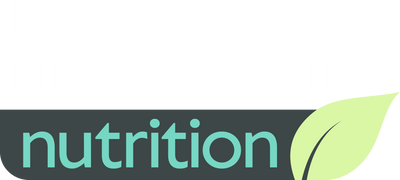What Is Bovine collagen?
April 10, 2019
Type I collagen and type III collagen are the major components of skin, hair, nails, muscles, tendons, ligaments, bones, gums, teeth, eyes and blood vessels. Together, types I and III collagen make up more than 90 percent of the collagen in our bodies.
Bovine collagen is rich in the amino acid glycine, which is necessary for building healthy DNA and RNA strands. These are the essential genetic building blocks for properly functioning body cells. Glycine is also one of the three amino acids that form creatine. Creatine is known to support, promote healthy muscle growth and aid in energy production during workouts.
Last but not least, bovine collagen also provides the amino acid proline. Proline plays a critical role in the body’s ability to produce its own collagen.
Hydrolyzed beef collagen was produced as a food supplement after scientists learned to break the long chain triple helix protein into shorter pieces and then separate the three helices from each other. The resulting short individual peptides make up hydrolyzed collagen.
Over time, this degenerative joint disease can cause cartilage to wear away, leading to pain, and eventually the bones could even rub against each other.
Multiple studies have showed collagen hydrolysate to be safe and to provide improvement in some measures of pain and function in men and women with OA or other arthritic conditions. Since cartilage is made up of collagen, it makes sense that supplementing with this building block could help the strength and framework of the cartilage itself.
Collagen hydrolysate (which is the same thing as hydrolyzed collagen) is of interest as a potential medical treatment for osteoporosis as well. Some researchers believe its high level of safety makes it an excellent long-term treatment for osteoarthritis and osteoporosis, which are both chronic disorders. So you suffer from either condition, you should include bovine collagen as part of your arthritis diet and/or osteoporosis diet treatment plan.
Through the use of collagen to increase low stomach acid levels, you’re able to better digest your food, which can prevent and help troubling heartburn and GERD (gastroesophageal reflux disease). It can also help leaky gut syndrome and inflammatory bowel disease, which also tend to involve low stomach acid.
Glycine is also helpful in at detoxification, which is excellent for your digestive health as well as your overall health. Glycine is actually one of the precursor amino acids to glutathione, a major antioxidant and detoxifying agent in the body.
Bovine pericardium also is used extensively in medical applications, including bio-prosthetic heart valves, dural closure, bone and dental membranes, and surgical buttressing. Because it’s mostly collagen, bovine pericardium is both strong and elastic.
In fact, lyophilized bovine collagen matrix has even been used in postoperative wound healing. In a pilot study, “type I bovine collagen matrix provided a safe, readily available alternative to traditional methods of second intention healing.” Using porcine collagen (from a pig), meanwhile, does not appear as safe, according to research.
In animals, findings show that oral administration of glycine increases extracellular serotonin release in the prefrontal cortex. The results of three human trials demonstrate that glycine improves sleep quality in a subjective and objective manner with no serious adverse effects.
Many people report a decrease in cellulite when consuming foods and supplements containing collagen, since cellulite forms due to a lack of connective tissue, allowing skin to lose its firm tone.
A double-blind, placebo-controlled study investigating the anti-aging properties of collagen conducted by the University of Kiel’s Department of Dermatology found that 2.5—5 grams of collagen hydrolysate used among women aged 35–55 once daily for eight weeks supports skin elasticity, skin moisture, transepidermal water loss (dryness) and skin roughness. At the end of only four weeks, those using collagen showed a statistically significant improvement in comparison to those using a placebo with regard to skin moisture and skin evaporation, plus noticeable decreases in signs of accelerated aging.
Sounds like quite the process, right? Additionally, digestion of dietary collagen can often be incomplete and result in very large peptide chains, which are not well-utilized by the body.
Well, there is a way to make it easier, and it’s to make sure that you purchase a collagen supplement that is already hydrolyzed. This means that the collagen has already been broken down into more easily digestible and usable forms.
- From the Greek word kólla, meaning glue, collagen is the most abundant type of protein found in the human body.
- Bovine or beef collagen is sourced from cows.
- Our ancestors utilized whole-animal nutrition, which naturally provided an abundant amount of collagen.
- Collagen-rich bone broths — beef, chicken, fish, lamb and more — are staples in the traditional diets of every culture and the basis of all fine cuisine.
- Bovine collagen is very high in amino acids.
- Hydrolyzed bovine collagen is broken down into smaller molecules for better digestion, absorption and use of nutrients.
Also in Health

Can collagen help with weight loss?
October 08, 2025
Collagen supplements have surged in popularity over recent years, with many people turning to these protein-rich powders and capsules for healthier skin, stronger joints, and improved overall wellness. But alongside these well-documented benefits, a new question has emerged: can collagen actually help with weight loss?

Can collagen supplements make you fat?
September 22, 2025
Worried collagen might cause weight gain? Discover the truth about calories, muscle growth, appetite control, and hidden additives in collagen supplements.
Sign up to get the latest on sales, new releases and more…


